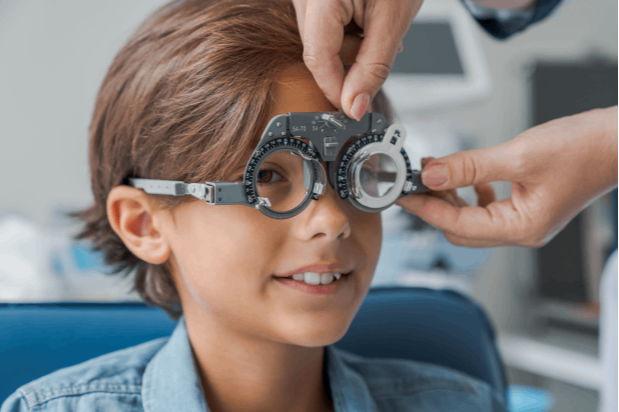All Categories
Featured
Table of Contents
Eye wellness is a critical element of general health, and normal eye tests play an important duty in keeping great vision throughout life. Each age group has particular requirements and risks connected to eye health and wellness, making it vital to comply with tailored referrals for eye assessments. Right here's a detailed introduction of exactly how typically eye exams should be arranged for different age.
After the very first examination, kids need to have a 2nd eye exam around age 3, when they can much better take part in screening and evaluation. If no vision issues are identified, the next examination is advised before beginning institution, commonly around age 5. Early discovery of issues can cause timely treatment and support healthy aesthetic development.
Moms and dads should look for signs of vision troubles, such as difficulty reviewing the blackboard, scrunching up your eyes, or whining of headaches. If any one of these signs emerge, it is essential to set up an eye examination without delay. Youngsters who get involved in sporting activities may take advantage of annual eye exams to make sure optimal aesthetic efficiency and security throughout activities.
![]()
Young adults usually experience electronic eye stress due to extensive screen time, bring about signs like dry skin and discomfort. Looking for an eye exam is important if you observe these symptoms. An eye care specialist can supply options, such as computer system glasses or way of living changes, to relieve stress.
For people with wellness problems like diabetic issues or hypertension, more constant exams may be essential. Regular monitoring is essential for early discovery and management of possible difficulties that can influence vision.
Seniors might likewise experience adjustments in their visual perception, such as trouble seeing in reduced light or differentiating shades. Regular eye examinations permit prompt treatment and aid preserve self-reliance and lifestyle.
Infants (0-2 Years)
Infants undergo significant visual development in their very early years, making early eye exams crucial. The American Academy of Pediatrics recommends that children have their first eye exam at regarding 6 months of age. This preliminary visit assists determine any type of potential vision troubles, such as strabismus (gone across eyes) or congenital cataracts, which can affect growth otherwise dealt with early.After the very first examination, kids need to have a 2nd eye exam around age 3, when they can much better take part in screening and evaluation. If no vision issues are identified, the next examination is advised before beginning institution, commonly around age 5. Early discovery of issues can cause timely treatment and support healthy aesthetic development.
Kids (3-18 Years)
For school-aged children, normal eye exams are crucial for both scholastic success and basic wellness. Children should have their eyes checked every one to 2 years, depending on their private needs. Institutions commonly conduct vision screenings, yet these do not replace thorough eye tests by an eye care specialist.Moms and dads should look for signs of vision troubles, such as difficulty reviewing the blackboard, scrunching up your eyes, or whining of headaches. If any one of these signs emerge, it is essential to set up an eye examination without delay. Youngsters who get involved in sporting activities may take advantage of annual eye exams to make sure optimal aesthetic efficiency and security throughout activities.
Youthful Adults (19-39 Years)
During young the adult years, numerous people delight in relatively steady vision, however that doesn't indicate eye treatment can be overlooked. Youthful grownups ought to arrange thorough eye exams every two years. Those who use contact lenses or have a family members history of eye disease should take into consideration yearly exams.
Young adults usually experience electronic eye stress due to extensive screen time, bring about signs like dry skin and discomfort. Looking for an eye exam is important if you observe these symptoms. An eye care specialist can supply options, such as computer system glasses or way of living changes, to relieve stress.
Adults (40-64 Years)
As individuals enter their 40s, modifications in vision can become extra noticeable, especially presbyopia, a problem that makes it challenging to focus on close things. Adults in this age must arrange eye tests each to 2 years. This is likewise the age when numerous eye diseases, such as glaucoma and diabetic retinopathy, can begin to develop.For people with wellness problems like diabetic issues or hypertension, more constant exams may be essential. Regular monitoring is essential for early discovery and management of possible difficulties that can influence vision.
Elders (65 Years and Older)
Seniors go to an increased threat for numerous eye conditions, including cataracts, age-related macular deterioration, and glaucoma. It's suggested that individuals matured 65 and older have an eye test at the very least yearly. Early detection of these problems is vital, as numerous can be dealt with efficiently if caught early.Seniors might likewise experience adjustments in their visual perception, such as trouble seeing in reduced light or differentiating shades. Regular eye examinations permit prompt treatment and aid preserve self-reliance and lifestyle.
Verdict.
Prioritizing eye treatment and normal check-ups ensures that people can delight in clear vision and a far better top quality of life, making eye health and wellness a vital element of long-lasting wellness. Normal examinations with an eye treatment professional will lead the means for much healthier eyes and a brighter future.Table of Contents
Latest Posts
Host Your Perfect Occasion: Venue Rental Choices for each Celebration
Published en
1 min read
A Lavish Escape: The Claridge Indoor Swimming Pool
Published en
1 min read
The Boogaloo Sports Bar & Grill at FunCity Resort Hotel: Where Enjoyable Satisfies Taste
Published en
1 min read
More
Latest Posts
Host Your Perfect Occasion: Venue Rental Choices for each Celebration
Published Mar 26, 25
1 min read
A Lavish Escape: The Claridge Indoor Swimming Pool
Published Feb 11, 25
1 min read
The Boogaloo Sports Bar & Grill at FunCity Resort Hotel: Where Enjoyable Satisfies Taste
Published Feb 04, 25
1 min read